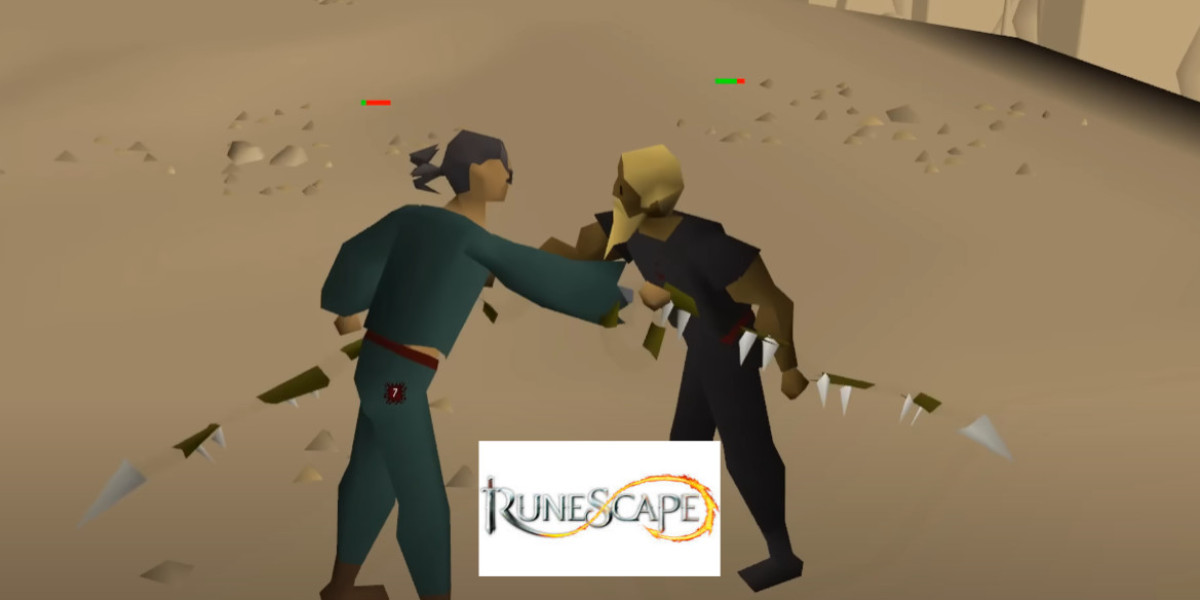RuneScape Gold: A Guide to Earning, Managing, and Navigating the Economy
Old School RuneScape (OSRS) is renowned for its dynamic economy, where gold plays a crucial role in shaping gameplay, player interactions, and overall progress. With updates and community events constantly influencing the game’s economic landscape, gold has become more than just currency—it's a reflection of both in-game effort and external influences. In this guide, we'll explore the different methods players use to earn gold, discuss the controversial aspects of RuneScape gold farming, and take a closer look at how OSRS's economy has evolved in response to player feedback and game updates.
The Evolution of Gold Farming in RuneScape
Gold farming has been a long-standing topic within the RuneScape community, especially for players in regions with economic difficulties. For some, gold farming provides a valuable income stream by selling in-game gold for real-world money. While the practice has been controversial, it highlights an important discussion about the fairness of the game’s economy.
In late 2022, an extraordinary PvP event further fueled these discussions. A group of players embarked on a 600-day-long pursuit of a high-profile content creator, C Engineer, to claim a monumental 16 billion gold bounty. This record-breaking event became a hallmark moment in OSRS, underlining just how seriously gold—and the pursuit of it—has become for players. However, while some see this as a fascinating display of skill and persistence, others worry about the impact that gold farming and real-money transactions (RMT) have on the game’s integrity.
The Impact of Gold Farming on RuneScape’s Economy
Gold farming and RMT, whether through bots or manual labor, have long been controversial due to their effects on the in-game economy. On one hand, players from regions where traditional employment is scarce may rely on gold farming to earn a living. On the other hand, the influx of illicit gold from these practices can cause inflation and destabilize the game’s economy. As a result, Jagex has made several attempts to curb gold farming by enforcing stricter rules and utilizing anti-botting measures.
The community is divided on this issue. Some players argue that gold farming is a legitimate way to earn real-world income, while others feel it unfairly impacts the balance of the game. Whether it’s through inflation or the sale of unearned gold, these activities bring into question the long-term sustainability of the in-game economy.
The Role of Microtransactions in RuneScape
RuneScape's economic landscape has been further complicated by the introduction of microtransactions, particularly through systems like the "Hero Pass," introduced in September 2023. This battle pass system offers rewards such as experience boosts and exclusive items, but it sparked controversy among players.
Many players voiced concerns over the increasing prominence of microtransactions in RuneScape, fearing that it would tip the balance toward pay-to-win mechanics. The Hero Pass, for example, has rewards that might make progress easier for paying players, leading some to argue that it detracts from the core experience of earning rewards through in-game effort.
Critics worry that the growing emphasis on microtransactions will undermine the sense of accomplishment that comes from traditional gameplay, where time, skill, and effort are rewarded. On the flip side, others argue that microtransactions are a necessary revenue model to keep RuneScape viable and funded for future updates and content.
Strategies for Earning RuneScape Gold
Despite the controversies surrounding the economy, RuneScape offers a wide variety of ways for players to earn gold without resorting to gold farming or microtransactions. Whether you're a new player or a seasoned veteran, there are numerous strategies to gather wealth:
Skilling: Mastering skills like Mining, Fishing, Woodcutting, and Smithing can be a consistent and reliable way to earn gold. High-demand resources such as ores, fish, and logs are frequently sold to other players for a steady profit.
Bossing and PvM: Taking down powerful bosses or participating in elite dungeons can yield significant rewards. Drops from high-level bosses like Vorkath, Zulrah, and the Wilderness bosses are among the most lucrative in the game.
Flipping and Merchanting: Players who have a good understanding of the market can take advantage of fluctuations in item prices. Buying low and selling high at the Grand Exchange allows players to profit from market movements.
Questing: Certain quests offer high-value rewards that can be sold for gold. Completing high-level quests or hard-to-complete tasks can be an excellent way to cheap OSRS gold build wealth while progressing through the game.
Treasure Trails: Completing clue scrolls can lead to some of the game's rarest and most expensive items. While the rewards are random, high-level clues can offer serious gold potential.
Conclusion
RuneScape's economy is a complex and ever-evolving system shaped by player actions, in-game updates, and external influences like gold farming and microtransactions. While debates about the impact of these practices continue, there’s no denying that gold remains an essential part of the game. Whether you're farming resources, defeating bosses, or engaging in player-to-player trading, understanding how to navigate RuneScape's economy can enhance your gameplay experience and help you accumulate the wealth you need to succeed.






